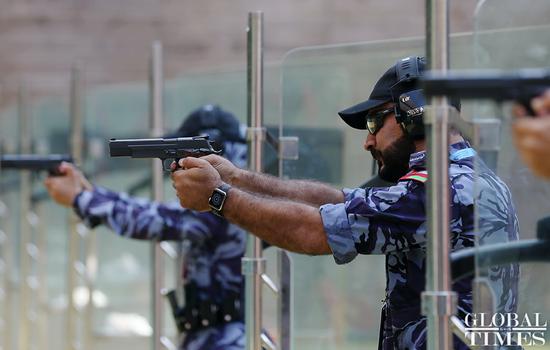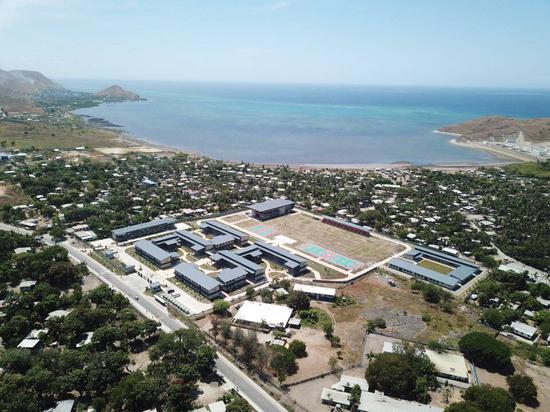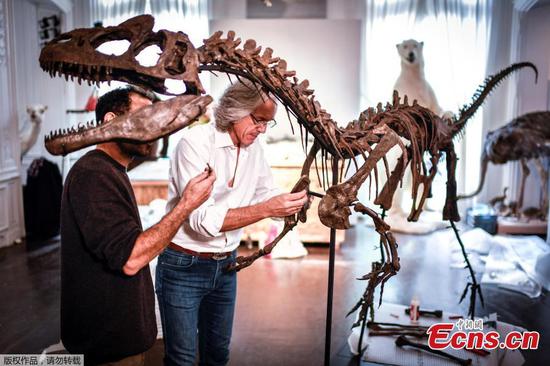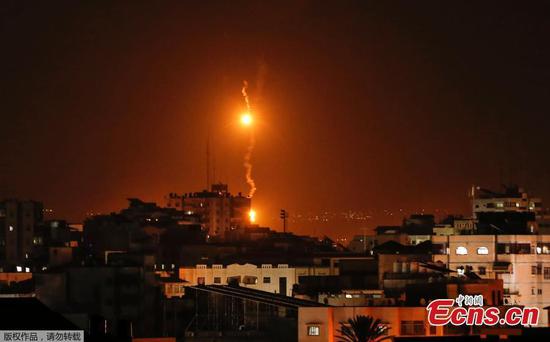
Children play among U.S. national flags erected to honor the victims of the September 11, 2001 attacks in New York, at the campus of Pepperdine University in Malibu, the United States, Sept. 10, 2018. (Photo/Xinhua)
The United States has appropriated and is obligated to spend an estimated 5.9 trillion dollars on the war on terror through Fiscal Year 2019, including direct war and war-related spending and obligations for future spending on post 9/11 war veterans, according to a study released Wednesday.
The latest Pentagon estimate pegged its costs in Afghanistan, Iraq and Syria since 9/11 terror attacks at 1.5 trillion dollars, according to its August report to Congress.
The annual Costs of War study from the Watson Institute for International and Public Affairs at Brown University far exceeds the Pentagon's estimates because it considers all war-related costs, study author Neta Crawford said in a statement.
The war cost included not only the Department of Defense spending in the war zones of Iraq, Syria, Afghanistan, Pakistan, and in other "overseas contingency operations," but also spending across the federal government that is a consequence of these wars, the study says.
According to the study, the Pentagon and State Department war funds for Iraq and Afghanistan make up 1.8 trillion dollars of its total alone, with Iraq costing 822 billion dollars and Afghanistan costing 975 billion dollars. The long-term health care of veterans from those wars could equal or surpass that figure in coming decades.
Moreover, if the conflicts continue into the early 2020s, the war-related costs may reach nearly 7 trillion dollars, the study estimates.
The researchers also charge that the Pentagon's base budget has grown more than 900 billion dollars over the last 17 years because of increased missions, recruiting costs and service member benefits brought on by the conflicts overseas.
"Because the nation has tended to focus its attention only on direct military spending, we have often discounted the larger budgetary costs of the post-9/11 wars, and therefore underestimated their greater budgetary and economic significance," the study states.
"We were told to expect wars that would be quick, cheap, effective and beneficial to the U.S. interest," Crawford told reporters on Capitol. "Because we finance these wars on a credit card, the costs of the wars themselves pose a national security challenge."
In addition to spending, the study estimates that over 480,000 people have died due to direct war violence, and several times as many indirectly because of war-related water loss, sewage, infrastructural issues, disease and other sufferings caused by war.
According to the study, the U.S. government currently is conducting counterterror activities in 76 countries.
"It's important for the American people to understand the true costs of war, both the moral and monetary costs," Democratic Senator Jack Reed, ranking member on Senate Armed Services Committee, said in a statement on Wednesday.


















































